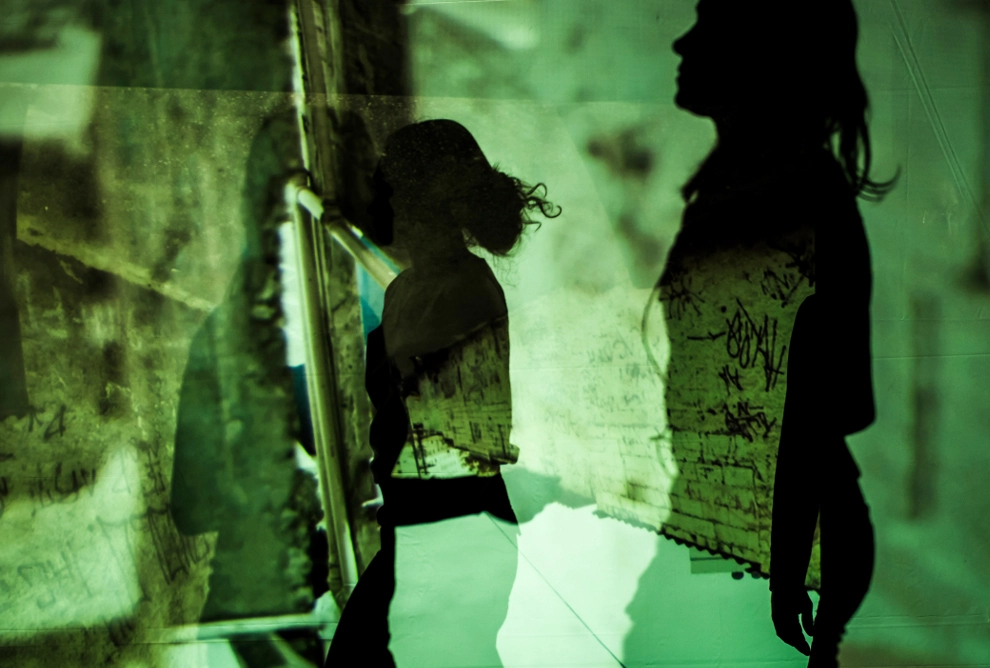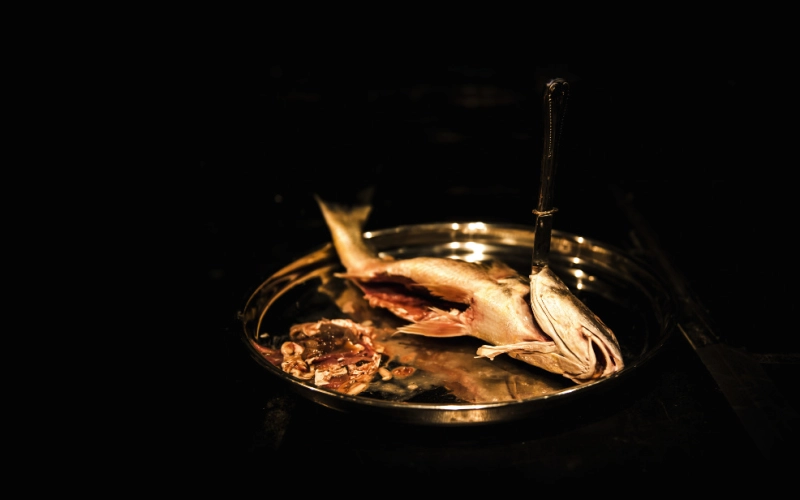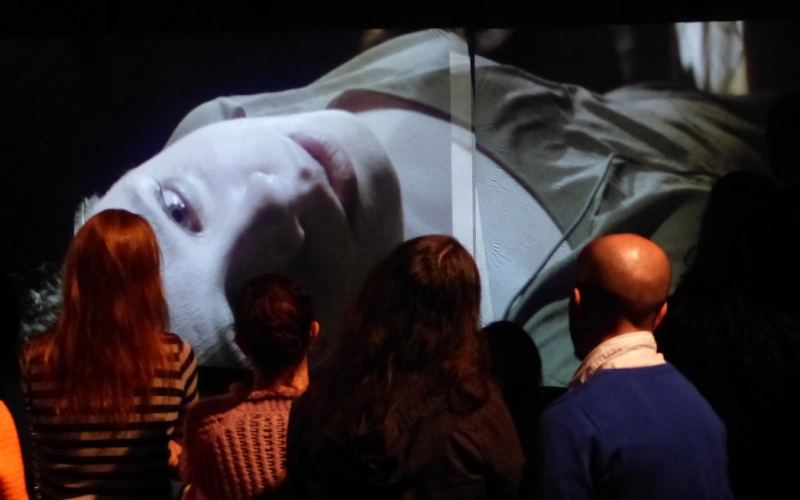A Floresta que anda
4 – 22 October 2016
Currently an Odéon associate artist, the work of the Brazilian director, Christiane Jatahy, has only recently made its mark on our continent. She has rapidly made a name for herself through the quality and originality of her work, at the crossover between theatre and cinema. Her shows seek to ensure that any questions posed in the works themselves are not simply played out before us but are addressed in a real, authentic way that loses none of their full weight of urgency and truth. All her productions tend towards the bringing up of questions regarding time and temporality in theatre and the impenetrable frontier between audience and stage. Since 2011, the artist has been involved in a form of research based on the major female figures of the theatre repertoire. She seeks to “introduce the reality of our times and the complexity of modern-day relationships, both personal and social, into a pre-existing fiction.” In Julia, based on the work by Strindberg, the use of a camera made it possible for audiences to pry into public or intimate spaces relegated to the very fringes of fiction. In it, Miss Julie’s destiny is delivered with all the impact of a performance piece, and the performer herself, Julia Bernat, ended the proceedings at the 104 theatre by questioning audience members directly, in French. In E Se Ellas Fossem para Moscou? (What if they went to Moscow?), a radical reworking of Chekhov’s Three Sisters, presented at the Théâtre de la Colline, audience members took on an intermediary role at the heart of a dialogue shifting between representation and documentary, fictitious enquiry and search for a genuine solution. In both these pieces, the question posed remains the same: given that things are the way they are, what can we today?
This same question arises in A Floresta Que Anda. Once again, the project takes us to familiar territory “between video installation, performance and live cinema”. This time, however, Christiane Jatahy enters into a new phase and no longer talks of adaptation, but rather of a “session” or a “composition around Macbeth”, involving the audience’s active complicity. The playing space seems to blend in with that of a contemporary art gallery. Spectators come and go as they wish, choosing whether or not to remain in front of one of the screens and listen to the interviews with the four “subjects” of the “works”. They are all victims of state-sponsored violence. They are all young, and their suffering continues today. Each is trying to stand up against it, in the name of a different future.
Alone, Julia Bernat, the only actress to have performed in all three shows, mingles with the guests at the “opening”. The female presence that she embodies is like the emanation of the work’s unconscious - a witch guiding the audience along the two slopes of the dream, the people’s side and that of the regicides. As for Macbeth, every evening it is the turn of a different actor to put in a brief appearance in the role. “I’m not interested in finding out who Macbeth is, but what Macbeth is”, explains Jatahy: “a Macbeth is always the product of certain choices”. Such choices, as we bear witness to in the video work, but also in the film made during the “session”, are made every day, in Brazil and across the globe. And will continue to be made until the day when tyrants, like Macbeth in the final act, see the impossible prediction come true: a forest in arms, rising up against them - for this forest is made up of men. And in theatre, as Jatahy readily points out, “the forest in the title, is the audience”.




